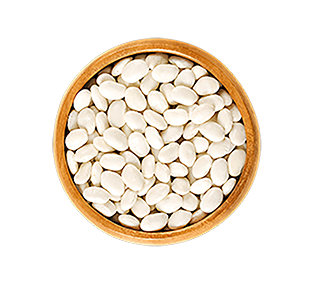Welcome Demo
How wonderful that you are here and engaging with your microbiome.
Get the most important insights about your microbiome at the start. Here, you receive a summary overview of the key values of your analysis, your most important areas of development, and your top recommendations.
Your personal microbiome coach
-
Hi Demo 👋🏽I'm your personal microbiome coach. Choose a topic you're interested in or ask for something else!
Generated summary
What you're already doing well
- You drink enough water daily for good gut health.
- Your regular exercise could positively influence your gut flora.
- You eat fruits and vegetables daily to get important fiber.
Your microbiome strengths
- Your gut dynamics function optimally for healthy digestion.
- Protection against allergies is very well developed in your gut.
- Your sleep and state of mind module shows solid performance.
Your microbiome weaknesses
- Your immune system could be strengthened with more fiber.
- Weight regulation could be improved with less stress.
- Harmful bacteria could be reduced with fermented foods.
You'll find more details in the Microbiome Coach in the BIOMES dashboard.
Key values of your sample
The key values of your gut health at a glance. Keep an eye on them and click on the names of the values to find out what they mean.
Important areas of development
The bacteria in your gut have different functions, such as affecting your immune system or metabolism. Below, we show you a list of 5 functional areas where you have the greatest need for action.
-
-
-
Along with other microbes, Proteobacteria are the most common microbes in our gut. However, they should be kept at very low levels as they possess many dangerous human pathogens with the potential to cause a number of diseases. Therefore, adult human intestinal flora naturally only contains a small proportion of Proteobacteria, ranging from 2.5 to 4.6% of the total gut microbiota.
-
15.54
Proportion of harmful bacteria (so-called proteobacterial index)15.54 -
-
-
These bacteria help our intestines to keep the intestinal mucus wall intact, reduce intestinal inflammation and may even inhibit the proliferation of cancer cells and harmful bacteria. They do this indirectly by forming the short-chain fatty acid butyrate from dietary fibres. This substance is a true marvel; insufficient butyrate levels may promote not only inflammatory processes, but also a number of intestinal diseases.
-
14%
The internal mucosal barrier and immunity14% -
-
-
Vitamin K is a fat-soluble vitamin that is needed by the human body to produce important proteins for blood clotting. In addition, vitamin K is needed to supply calcium to bones and other tissues. The bacteria listed here can produce vitamin K. Note: Here you can see if these bacteria are present in your gut, but not how much vitamin K you actually have in your body.
-
20%
Vitamin K production20% -
-
-
These bacteria can influence how easily you gain or lose weight, for example by affecting your metabolism. According to studies, they are often found in the intestines of very slim people. This means that slim people tend to harbour more representatives of these bacteria, whereas people who want to lose weight can promote the proliferation of the little helpers with the right diet.
-
33%
Weight regulation33% -
-
-
Vitamin B12 is important for the normal functioning of the brain and nervous system as well as for the formation of red blood cells. Unfortunately, we humans cannot produce vitamin B12 ourselves, which is why the bacteria listed here have to do it for us. Attention: Here you can read whether these bacteria are present in your intestine, but not how much vitamin B12 you actually have in your body.
-
33%
Vitamin B12 production33% -
-
Top 3 Foods
The following three foods have the greatest positive impact on your microbiome and support specific functions of your bacteria. You can find more foods and details under the menu item Results.
Navy beans

Almonds

Apples

Individual gut health solution
Based on your test results, probiotics are not the best choice for your microbiome. Instead, an innovative postbiotic can provide the targeted support your gut needs. Curcuma Life provides bioactive compounds that promote intestinal balance, strengthen the immune system and have an anti-inflammatory effect - all without live bacteria.

Curcuma Life
Our postbiotic supplement Curcuma Life harnesses the power of fermented Curcuma with bioactive metabolites to support your digestion and immunity. Unlike probiotics, it provides stable, research-backed benefits without the need for live bacterial cultures. Ideal for those with gut sensitivities, inflammation, or seeking a microbiome-friendly alternative.
Order nowQuestionnaire & report

Do you want more details about your sample? Then click through to Results and learn everything about the functions of your bacteria and how you can support them.